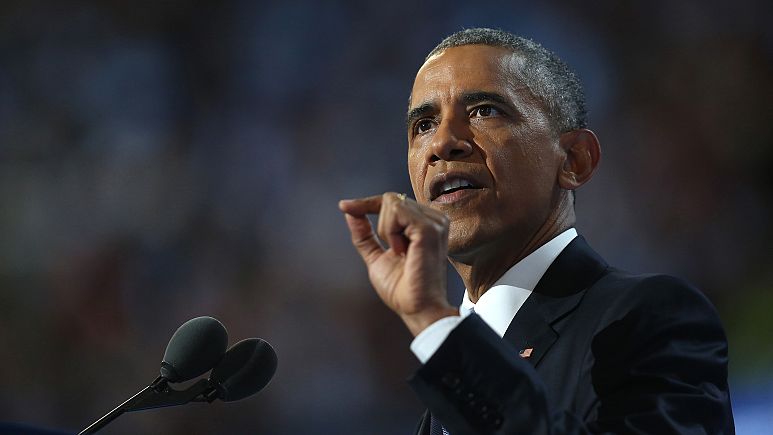
What 2020 Democrats can (and can't) learn from Obama's historic Iowa win
by Priscilla Thompson and Maura BarrettDES MOINES, Iowa — As the first primary contest in Iowa rapidly approaches, the 2020 campaigns are looking to former President Barack Obama's historic winthere in 2008, seen as key to solidifying his strength as a candidate.
"It was the moment that changed everything for the Obama campaign and, ultimately, for the country," South Bend, Indiana, Mayor Pete Buttigieg said in an October email to supporters ahead of the Iowa Democratic Party Liberty and Justice Dinner, a key Democratic fundraiser in Des Moines. "That same moment for Pete, and for America, is this Friday night."
At another major Democratic event, the Polk County Democrats Steak Fry, California Sen. Kamala Harris marched in alongside the Isiserettes, the same marching band that Obama featured at the 2007 event - the Harkin Steak Fry at the time. And of course, former Vice President Joe Biden often talks about his "buddy Barack" while on the campaign trail.
But imitation alone won't be enough to capture the energy of the current electorate and keep it, advisers to the former president said.
"We were showing a country that a black man can become a candidate, and become a nominee, and become a president," said Michael Blake, the former Iowa deputy political director for the Obama campaign, "There was a level of depth to it, that is just very different."
"Anytime you see the Isisirettes marching, it's like, 'oh boy that's, that's kind of like Obama,'" a former senior Obama staffer and Democratic strategist told NBC News. "But on caucus night that's not what they're going to be caucusing for."
Even Obama himself has spoken out about the need for candidates to run a different race in the lead up to 2020.
"I wouldn't run the same campaign today, in this environment, as I ran in 2008," Obama said to a group of Democratic donors in Washington earlier this month. "In part because we made enough progress since 2008, of which I am very proud, that it moved what's possible."
Obama's Iowa ground game is seen as a major factor in his success there. The then-Illinois senator had a seismic 35 campaign offices, including some in less populated areas, which made it easier for the campaign to directly connect with voters. Many of the candidates this cycle have taken a similar strategy focusing on field organization and direct engagement with voters.
After becoming the first major Democrat to enter the 2020 race last year, Massachusetts Sen. ElizabethWarren quickly began campaigning in Iowa, visiting several of the state's major cities and hiring people in the area as early as January. By late spring, she had around 50 staffers on the ground, far more than any of her competitors in the race at that point.
"Warren's going all in on organizing Iowa back in April and May, is paying dividends," the former senior Obama staffer said. "You can't deny that."
Warren held consistently leadsin Iowa polls throughout the fall, though she has seen support slip in recent weeks as Buttigieg surges.
The former Obama senior staff member said Buttigieg's early embrace of cable TVhas helped his candidacy rise.Buttigieg, who has over 20 field offices in Iowa, has also spent more on digital ads than almost any other candidate.
"His digital ads have really broken through in a way some other candidates haven't," the former senior Obama staffer said. "That is also paying dividends for him right now."
Both Warren and Vermont Sen. Bernie Sanders have used major Democratic events in Iowa to work directly with supporters instead of participating in the so-called "sign wars"that have traditionally been a major part of Iowa campaigning.
During the Polk County Steak Fry, a large picnic fundraiser, where most candidates turn their supporters out in matching t-shirts to wave signs and cheer, Warren supporters walked around with clipboards signing people up to learn more about the campaign. Bernie Sanders displayed a wooden door at his empty rally site with a sign posted that read, "Out door-knocking."
Ultimately, though, the candidate may end up mattering far more than the campaign itself, particularly because whoever wins the nomination is running against President Donald Trump. But Blake, the former Obama Iowa director, cautioned campaigns against focusing too much on Trump.
"It cannot just be that you're voting against Trump," Blake said. "People want to know that they're voting for you and why am I excited to vote for you. People in Iowa and across the country were excited to go and caucus and vote for Barack Obama. You have to create that same kind of energy in Iowa, given all that is happening."